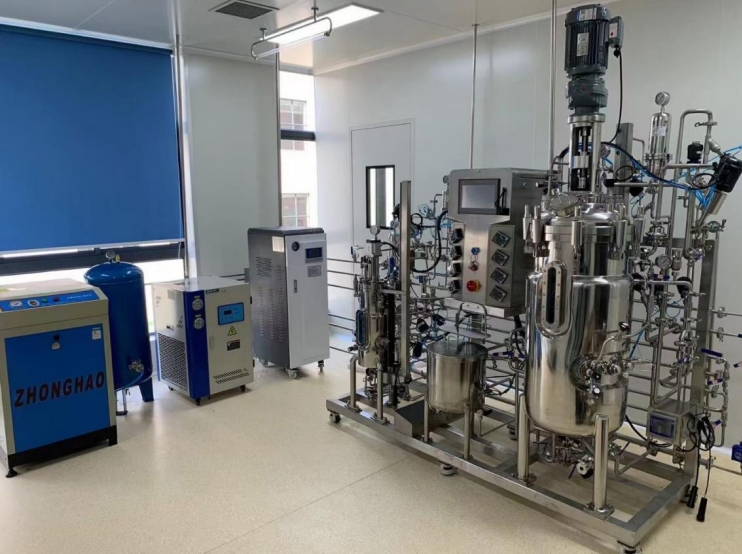
https://www.sinotechmachinery.com/products/two-stage-multi-stage-fermenter-10l-100l-automatic-sip/
Strain screening and seed expansion culture are key links in the process of microbial fermentation and biotechnology.
The following is a detailed introduction to these two steps:
1. Strain screening
Strain screening is the process of selecting the microbial strain that best suits specific production needs, which usually includes the following steps:
Identify the target substance to be produced (such as antibiotics, enzymes, organic acids, etc.).
Determine the characteristic requirements of the strain, such as growth rate, metabolic capacity, tolerance, etc.
Collect potential strains from strain libraries, literature or other studies.
Perform preliminary separation and purification.
Cultivate strains on suitable culture media and observe their growth and the production of metabolites.
Evaluate the growth rate, yield, etc. of different strains under specific conditions.
Compare the performance of each strain under specific fermentation conditions through fermentation experiments.
Perform various biochemical and molecular biological analyses to evaluate its metabolic characteristics.
Optimal strain screening:
Select strains with fast growth rate, high yield and excellent metabolic characteristics as preferred strains.
Carry out small-scale fermentation tests to further confirm its production capacity.
2. Seed expansion culture
Seed expansion culture is to carry out batch culture of the selected preferred strains in order to prepare for subsequent large-scale fermentation production. The specific steps include:
Inoculate the selected strains into a suitable liquid culture medium, usually using a shake flask or a small fermenter for preliminary culture.
Control the culture conditions (such as temperature, pH, dissolved oxygen, etc.) to promote the growth of the bacteria.
Inoculate the primary cultured bacteria into a larger-scale culture device (such as a medium-sized fermenter).
Continue to optimize the culture conditions to ensure rapid growth of the bacteria and accumulation of metabolites.
Inoculate the intermediate cultured bacteria into a large-scale fermenter (industrial scale) for large-scale culture.
Monitor and adjust the culture parameters (such as nutrients, oxygen supply, stirring rate, etc.) to increase yield.
Harvest and post-processing:
Harvest the bacteria or metabolites at the appropriate time point.
Perform separation, extraction and purification to ensure that the final product meets the quality standards.
Regularly test the growth of the culture, the concentration and quality of the metabolites to ensure that the culture process is stable and reliable.
Summary:
Strain screening and seed expansion culture are two important steps in microbial fermentation. Through sophisticated experimental design and strict condition control, the yield and quality of the target product can be effectively improved, laying the foundation for subsequent commercial production.
Types of bioreactor for sale at Sinotech, your reliable and professional pharmaceutical machine company.
cip bioreactor
vaccine bioreactor
solid state bioreactor
stainless steel bioreactor
photobioreactor for sale
external loop airlift bioreactor
mammalian cell culture bioreactor
Welcome to contact us to quote!

 English
English français
français Español
Español русский
русский português
português العربية
العربية Deutsch
Deutsch tiếng việt
tiếng việt 한국어
한국어 Türkçe
Türkçe Malay
Malay




